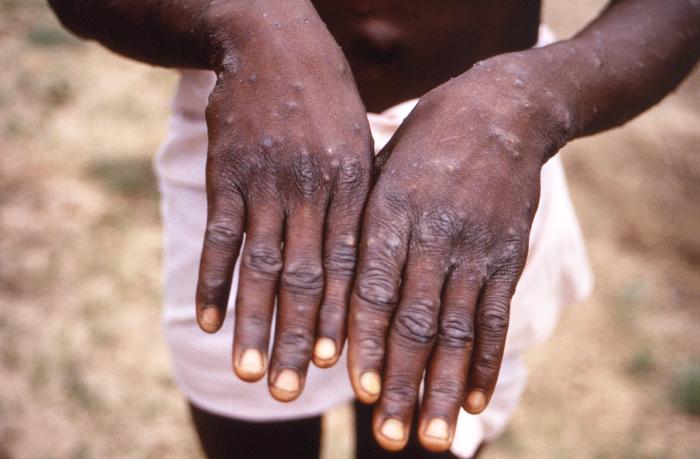Monkeypox is a disease that is caused by infection with the monkeypox virus.
The virus is transmitted from one person to another by close contact with lesions, body fluids, respiratory droplets and contaminated materials such as bedding, says the World Health Organisation (WHO).
The global health body also says that the incubation period of monkeypox is usually from six to 13 days but can range from 5 to 21 days.
However, it says monkeypox is usually self-limiting but may be severe in some individuals, such as children, pregnant women or persons with immune suppression due to other health conditions.
Symptoms
The symptoms of monkeypox, according to the Nigeria Centre for Disease Control (NCDC) include sudden fever, headache, body pain, weakness, sore throat, enlargement of glands (lymph nodes) in the neck and under the jaw, followed by the appearance of a rash (often solid or fluid-filled at the onset) on the face, palms, soles of the feet, genitals and other parts of the body.
Prevention
Public Health Safety Measures have been identified as the way out as the NCDC urges Nigerians on caution.
„The NCDC emphasises that members of the public should remain aware of the risk of Monkeypox and adhere to public health safety measures.
Healthcare workers are to maintain a high index of suspicion for Monkeypox and report any suspected case to the relevant state Epidemiology Team for prompt public health intervention including sampling for confirmatory testing.“
The Centre has also advised that anybody with known signs and symptoms of the disease should report to the nearest health facility.
NCDC also however says that although Nigeria’s risk of exposure to the Monkeypox virus is high based on the recent risk assessment conducted at NCDC, the current situation in-country and globally has shown no significant threat to life or the community that can result in severe disease or high case fatality rate. The EOC will continue to monitor the evolving situation to inform public health action accordingly.





